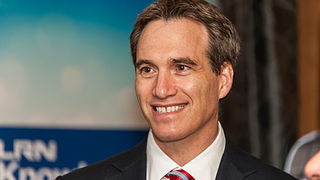A Quote by Lynne Doughtie
Innovation demands risk-taking - which, in turn, entails redefining failure, stripping away its power to inhibit.
Quote Topics
Related Quotes
Trusting others puts us at risk. Yet failure to trust entails risk as well. The ability to navigate through this minefield successfully is one of life’s most valuable assets. DeSteno provides by far the best account of what science has learned about how we do this. The Truth About Trust is also a terrific read.
But innovation is more than a new method. It is a new view of the universe, as one of risk rather than of chance or of certainty. It is a new view of man's role in the universe; he creates order by taking risks. And this means that innovation, rather than being an assertion of human power, is an acceptance of human responsibility.
For all great innovations, someone took a risk. They risked capital; they risked their energy; they risked their opportunity cost; and more important, they risked failure. We can't innovate without the belief that we can succeed, the confidence that others will be there to help us on the journey, and the security that we will not be punished if we fail to reach our goal. A fast-moving world demands innovation for long-term success.
To laugh is to risk appearing a fool. To weep is to risk appearing sentimental. To reach out to another is to risk involvement. To expose feelings is to risk exposing your true self. To place your ideas and dreams before a crowd is to risk their loss. To love is to risk not being loved in return. To hope is to risk pain. To try is to risk failure. But risks must be taken, because the greatest hazard in life is to risk nothing.

































